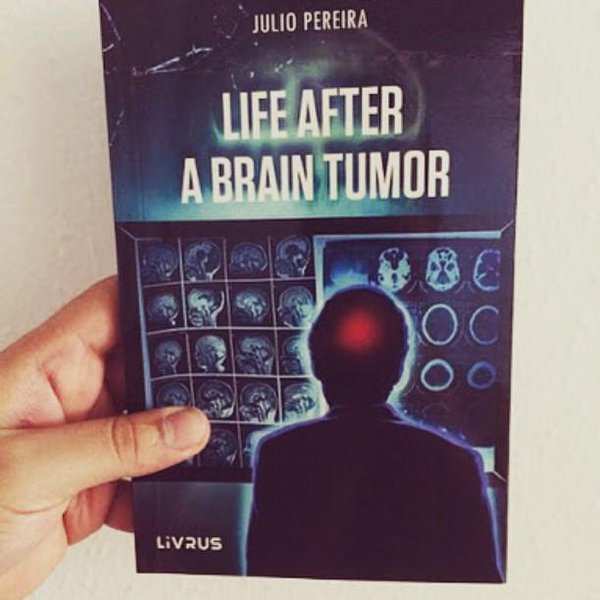Life After a Brain Tumor – Book
Author: Julio Pereira
Chapter One:
I’ve never written
Writing has never been my gift, even writing my thoughts. Since childhood I always have many ideas and many stories to tell, however, I couldn’t write about them.
When entering into medical school this situation has worsened. Medical secrecy is embedded in me. I stopped telling stories, I couldn’t do it, it is unethical. Ethics is saving. Cry alone. At most say that something bad has happened in the hospital.
I found a way to deal with my necessity to write: the scientific articles. I held on it with all my strength. You may even find that it makes no sense, but it does. Case reports (medical) were my way of breaking the silence, way to continue storytelling.
After I had enough of it, it stopped making sense having published articles. It was too far from reality and too technical. I made some trips, internships, residency, but everything was still very far from reality. I started dedicating myself to read the news in the newspapers; despite the bad news, it seemed that the best scientific articles were more human.
But I’ve still needed more. I wanted to write. I used to think of the impact: I had a good career ahead of that I could not destroy it with an impulse, an unfounded desire. I wanted to write what I saw, the dialogues, the prints, but it could be misunderstood. I could create a pseudonym and tell the story. But that thought was always restrained because something was repressing me.
Everything changed the day I had a severe headache, such that I can only describe as the worst of my life. There was no way to use another expression, or stab, or tightening, just the worst pain I’ve ever had. I didn’t know what to do, so I just ask a prompt examination for my colleague in the corridor.
— Do you want a CT scan?
— No, a MRI!
— But don’t you always say that we should ask before a CT scan?
— Yes! But in this case it is for me.
With this emotional and individualistic argument, I’ve gotten my order of MRI. I went alone and accomplished my examination. I looked for a hospital where no one knew me and I was examined. When I finished it I went to the radiology room.
— Alright mate? I’m a doctor.
— Alright.
— May I see my test?
— Sure.
By looking the results, I found an injury in my left temporal lobe. It looked like a low-grade glioma. I did not give a word to anybody and left. I felt no sadness, only butterflies in my stomach. I had a tumor. Everything seemed clearer. I should do what I wanted to do. I grabbed my notebook, packed my things and left. I called colleagues and family; just said I needed a vacation week.
I still do not know what I’ll do with the tumor. I’ll probably decide to operate it, but first I have to write about it. I took a deep breath and thought: it is just a brain tumor. I see it every day, and I have several patients with a normal life after surgery. Naturally any new case generates anxiety and I had never seen a neurological clinical case in myself.
For me the trip was just an excuse to break my vow of silence. Now I had good reasons to write. The lesion was in the temporal lobe, if it happened any backlash to my writing I could claim to a behavior change, which is common in this type of tumor. Another fact is that I could lose the ability to understand the language because the lesion was near the area of language, in the temporal lobe.
I thought about all the possibilities and understood that was time to break the silence and speak about the cases that I have experienced, talk about mainly sensations, sufferings and emotions. When I started thinking, some cases came to my mind. Then I decided that I would write stories of the office appointments, treatments and duty periods and organize them in several chapters. Life does not have an order, it doesn’t make sense. As this book is about my life, it will be all cutted with my memories.
BooK – Life After a Brain Tumor (click)

